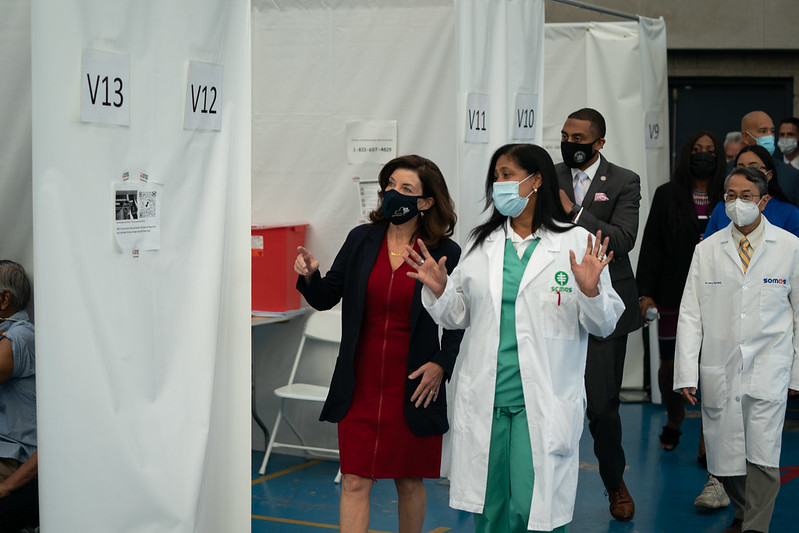
Good health care is essential (photo: Don Pollard/Governor’s Office)
More than 5.5 million New Yorkers rely on Medicaid managed care health plans for their care. Many of these members are among the state’s most at-risk residents, with multiple health conditions that require coordination of numerous services. This includes both physical health and mental health care, long-term services and supports, as well as help coordinating social services, such as housing, employment, education, and food access. They often rely on Alzheimer’s Disease Resource Center (ADRC) and other community-based organizations to help them navigate the health-care system and access the care and services they need.
Unfortunately, a provision in Governor Hochul’s proposed state budget for the upcoming fiscal year will take away choices from patients, create havoc in the delivery system, and undercut efforts to promote health equity.
The proposal would direct the Department of Health to reduce the number of health plans in the Medicaid program to no fewer than two but no more than five in each region of the state. Hundreds of thousands of individuals will be forced out of their current plan, disrupting their care and potentially forcing them to switch providers.
As an organization that provides care, support and education to families facing Alzheimer’s disease and other dementias, we’re concerned that it will make it harder for the people we serve to get the services they need. If their current plan is eliminated, the disruption in care will also impact the families who are already often overwhelmed with their caregiving responsibilities.
The proposal also runs counter to the state’s goal of promoting health equity. Underserved populations, including communities of color, have been disproportionately affected by the pandemic. Taking options away from Medicaid members doesn’t just threaten the ability of providers to support their patients but will undercut efforts to address racial and ethnic disparities in care. While New York’s Medicaid program has been a national leader in improving quality and health-care outcomes, the challenges this proposal will cause to coordinate care has the potential to threaten those efforts.
Despite the health and economic impact of the pandemic on the state, New York’s uninsured rate dropped to less than 5%. Medicaid has played an important role in providing a safety net in the middle of a global health crisis. Unfortunately, the governor’s proposal will take away resources from other important health priorities.
For example, as the public health emergency ends the state will have to recertify eligibility for every Medicaid member. Taking options away from patients will make it harder to ensure that low-income individuals stay covered as they try to navigate these changes.
It is more important than ever to protect the choices available for vulnerable New Yorkers who rely on the Medicaid program. The state should not make it more difficult for New Yorkers with complex health conditions to get the care they need. Considering the level of disruption the proposal will cause for patients and providers, the governor and Legislature should drop this policy proposal from the state budget that is due by April 1.
***
Robin Marks is Executive Director of Alzheimer’s Disease Resource Center. On Twitter @adrcinc.
***
Have an op-ed idea or submission for Gotham Gazette? Email This email address is being protected from spambots. You need JavaScript enabled to view it.




